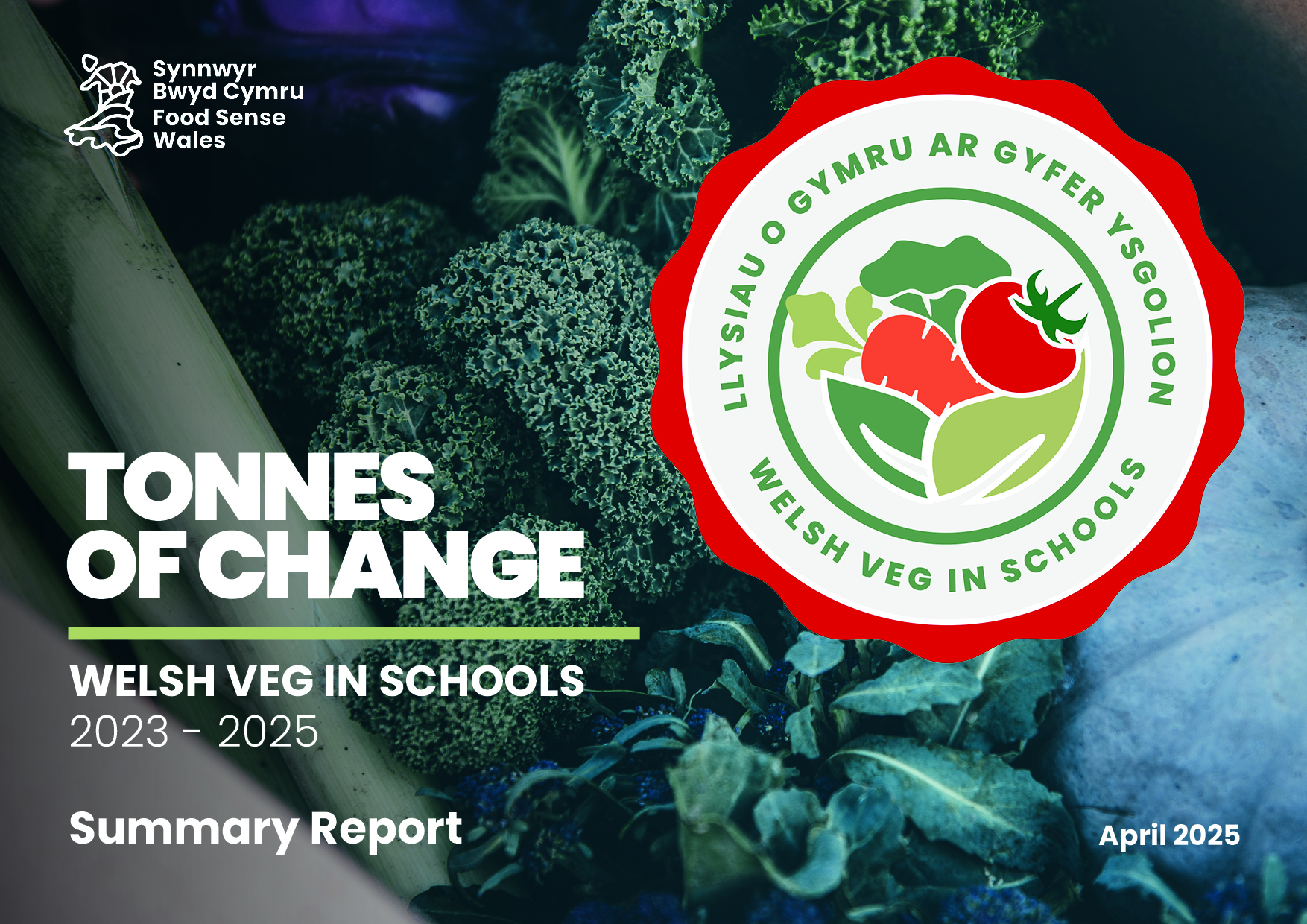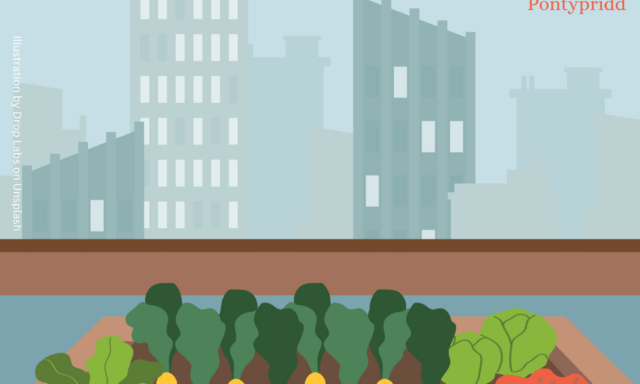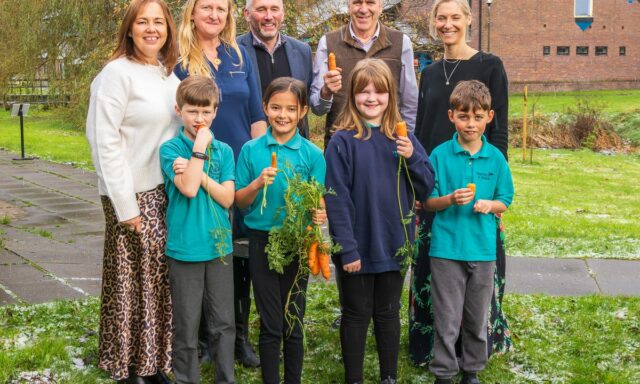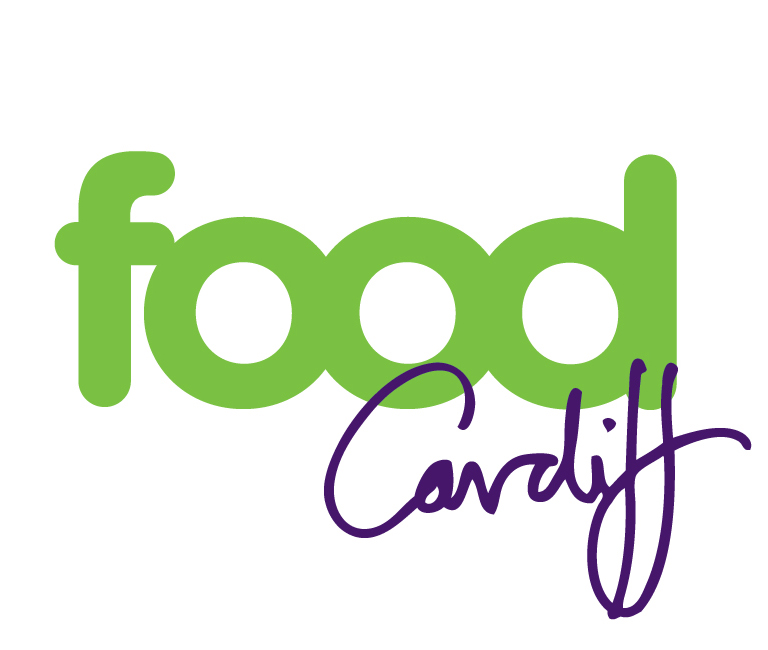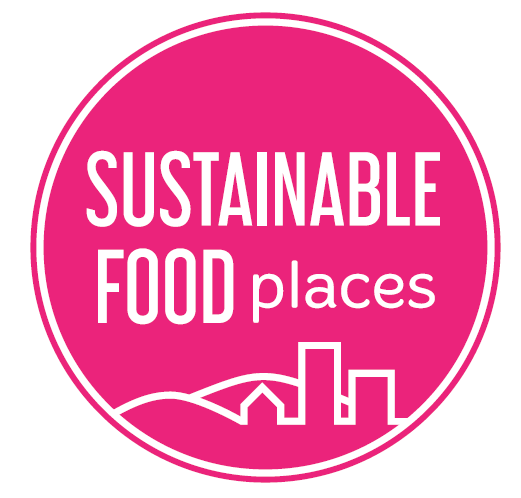Tonnes of Change: Welsh Veg in Schools report published today
Thursday, April 24th 2025
With the right planning and with significant investment in infrastructure, around 25% of all veg in schools across Wales could be Welsh organic by 2030. This is the conclusion of a report published today by Food Sense Wales that notes the findings of the Welsh Veg in Schools participatory action research pilot, and documents the initiative’s impact since its inception in 2023.
Furthermore, the report also found that simply adding 3.3p per meal per day to the price paid by Local Authorities and Welsh Government would allow for 2 portions of local organic veg to be included seasonally and would incentivise the following benefits:
- 901 tonnes purchased would provide £2.21 million direct to Welsh producers with a multiplier of 3.7 to give an estimated £8.2 million in social, economic and environmental benefit
- £552,500 investment in infrastructure
- Increased capacity to supply and increased average farm income in Wales
- More resilience in the supply chain
- 74.3 FTE jobs on Welsh farms
- 50 hectares of organic veg
- 226 tonnes CO2e saving
- 35% increase in birdlife in fields
- Reduced reliance on imports from countries at high risk of water scarcity
Welsh Veg in Schools is a collaborative effort to supply organic, locally grown vegetables to schools across Wales. It is co-ordinated by Food Sense Wales and works with partners that include Castell Howell, Farming Connect Horticulture as well as a host of enthusiastic growers.
By leveraging the market opportunity that the Welsh Government’s Universal Free school meal policy creates, and by supporting public bodies to meet their statutory requirements, Welsh Veg in Schools is catalysing organic veg production in Wales and building resilience for the future. This work is crucial if public bodies are serious about meeting their obligations under the Well-being of Future Generations (Wales) Act whilst supporting local communities and building resilience against future shocks and climate change.
Food Sense Wales first started exploring the procurement of locally produced veg with the ‘Courgette Pilot’ – a pilot project that involved one grower and one wholesaler and delivered nearly one tonne of courgettes into primary schools in Cardiff during Food and Fun in the summer of 2022.
In 2023, with support from the Welsh Government’s Backing Local Firms Fund, Welsh Veg in Schools launched its first phase, working with three growers across Cardiff, Carmarthenshire, and Monmouthshire, supported by local Food Partnerships.
Recognising that Welsh organic vegetables are more expensive than veg that’s conventionally grown, the pilot has covered the price gap between local, organic produce and standard prices. In Spring 2024, Food Sense Wales received additional funding from the Bridging the Gap programme to scale the project and expand its reach across the public sector.
What began as a small pilot project has since grown into a movement and in 2024, Welsh Veg in Schools served 200,000 portions of fresh, organic veg in more than 200 schools across Wales.
Report author, Dr Amber Wheeler said: “What’s been achieved in Wales on getting locally grown organic veg through public procurement into schools is massive and pioneering and is the result of the fantastic collaboration across the supply chain as well as the support from Government. The most important thing is that the needs of growers and farmers have been put at the heart. They need as much support as they can get if we are going to transform our local food supply chains for the better. The next step needed is the investment in scaling up infrastructure both on farms and in processing.”
Milestones Achieved
Since its inception, Welsh Veg in Schools has achieved remarkable progress:
- 200,000 portions of Welsh organic vegetables made available in 2024
- In 2024, 14 tonnes of locally grown organic produce were delivered to more than 200 schools in six local authorities
- In 2024, 8 growers took part in the projected with 15 expected to participate in 2025
- During 2025, it’s anticipated that 60 tonnes of vegetables will be served to schools across 12 local authority areas equating to 1 million portions of veg.
In 2024, the project also:
- Saved 3 tonnes of CO2e emissions
- Increased biodiversity by 35%
- Reduced reliance on imports from countries at high risk of water scarcity
- Created 2 FTE jobs on farms in Wales
- Contributed to a 20% increase in the area of land used to grow veg in Wales while the rest of the UK has seen a decline
The number of fruit and veg producers in Wales has also increased dramatically, by 146% over the last four years, from 204 in 2020 to 502 in 2024.
However, challenges remain, particularly the price difference between locally sourced organic vegetables and imported produce. With funding from the Welsh Government and Bridging the Gap, and with the support of Castell Howell, the project has been able to help bridge the price gap, ensuring that the cost of organic produce remains affordable for schools and local authorities.
“We simply don’t know how supply or affordability of imported fruit and veg will stand up to increasing global instability and the impacts of climate change,” says Katie Palmer, Founder and Head of Food Sense Wales. “Investing in the capacity of local supply chains in Wales to provide organic fruit and veg to the most vulnerable in society – through our schools, hospitals and care homes – makes sense for local economies, it makes sense for climate and nature and makes sense to secure a resilient supply of nutritious food for current and future generations.”
By encouraging growers to supply into public procurement through Welsh Veg in Schools, the scheme has helped to develop the horticulture sector in Wales, providing a host of benefits including a guaranteed income for the veg going into school kitchens.
Grower, Ruth Davies said: “We’re delighted to be involved in this amazing project. It’s a fantastic opportunity to supply fresh, local food to local schools. At Gardd Enfys, we’re also working directly with schools to show children where their vegetables are grown and help them connect with the food on their plates.”
Farming Connect Horticulture is a key partner in Welsh Veg in Schools, focusing on training and supporting growers to deliver safe, high-quality produce. In 2023, they also developed the ‘Small Growers Suppliers Standard’ to ensure compliance with legislative food safety requirements.
Sarah Gould, Horticulture Manager at Lantra, the delivery partner for Farming Connect’s horticulture programme said: “Welsh Veg in Schools offers a route to market which reduces risk, enables forward planning and assists with growth of the sector, enabling more people to experience the quality food that Wales can produce. Through the type of support that we’re offering the growers, we’re also helping to raise standards and share best practice. Welsh Veg in Schools is a really inspiring project to be a part of and it’s exciting to see the positive impact it’s having on the horticulture sector in Wales.”
Wholesaler Castell Howell has been a part of Welsh Veg in Schools from the very beginning, having also worked with Food Sense Wales on the ‘Courgette Pilot.’ Castell Howell understands the pressures on the food system; the vulnerability of global supply chains, and the need to build local resilience and invest in local supply chains. Edward Morgan said: “Restructuring supply chains to the education sector, where 100% availability, 100% of the time is critical, can only be achieved in collaboration. Against the backdrops of universal free school meals increasing demand, delivering social value and the challenge of reducing environmental impact, this initiative is making meaningful change and we’re proud to be a partner.”
Judith Gregory, Head of Education Catering at Cardiff Council, and National Chair of LACA, has been on the Welsh Veg in Schools journey since its inception and said: “The achievements of the programme can be attributed to the majority of school meal services in Wales being delivered in house by local authorities, enabling collaborative working, whilst also supporting Welsh growers, farmers and producers.”
Looking to the Future: A Vision for 2030
The ultimate goal of Welsh Veg in Schools is for 25% of all vegetables used in primary school meals in Wales to be locally grown and organic by 2030. To achieve this, the initiative will continue to expand, with plans to reach 12 local authorities in 2025, engaging even more schools, farmers, and communities across Wales.
As the project scales up, the report notes a list of recommendations including:
- More support for growers, including training and infrastructure development.
- The need for a stronger, more resilient local food system that reduces Wales’ reliance on imported produce and boosts the rural economy
- Increased opportunities for children to learn more about food and where it comes from, as well as opportunities for school catering staff to develop their veg skills
“We are incredibly proud of what we have achieved so far, but we know there is still much work to do,” adds Katie Palmer, from Food Sense Wales. “This work is a huge collective endeavour and its success is a testament to the collaborative energy and the investment of multiple stakeholders in Wales; partners in the UK, and our funders.”
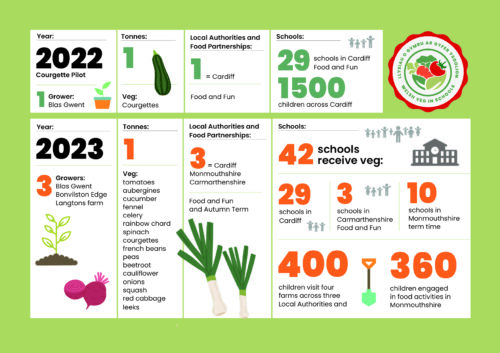
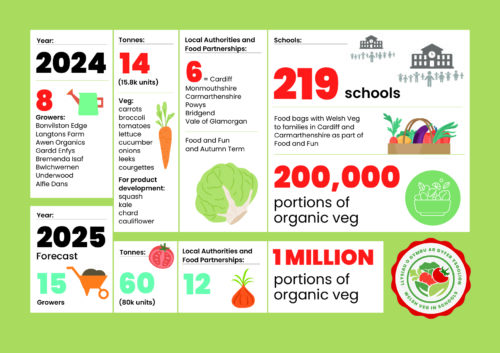
ENDS

